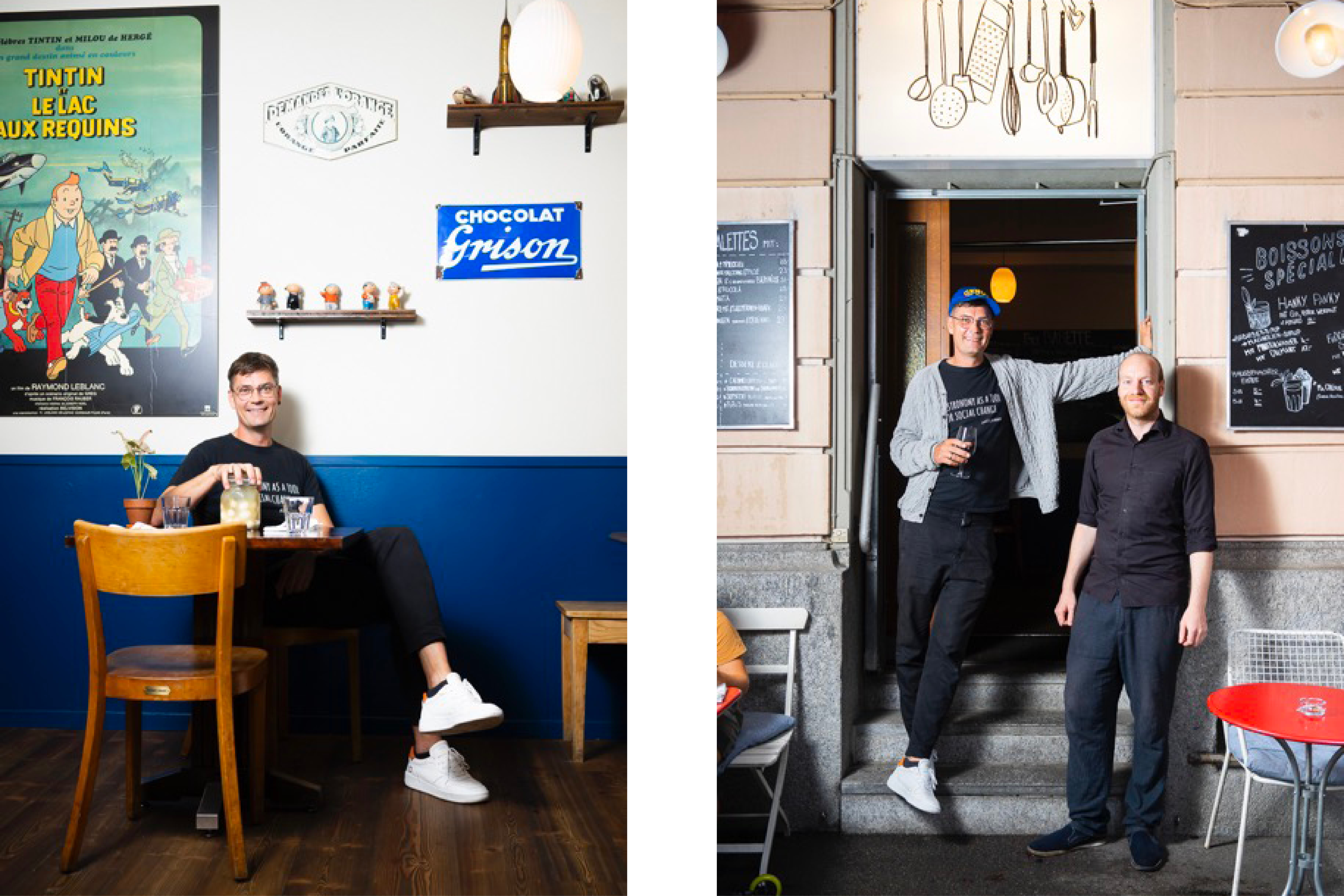Discover more SoToSo Restaurants!
Babette
Article in collaboration with team Babette
© Sina Lou Ravasio
The Mühletal Gastro, after the Restaurant Mühletal (2010-2014) and the Holzschopf (2014-2018), has been operating the Babette in the heart of Wiedikon for 4 years now. The Babette was a creperie for about 15 years, a tradition they have maintained while complementing it with bistro dishes. Sustainability is their primary focus.
Sustainable hospitality is ingrained in their DNA, and they have always been contemplating what a sustainable gastronomy, socially, ecologically, and economically, could look like. They consider natural cycles and strive to close them. What comes to them ends up on the plate - they aim to waste as little as possible. Their dishes are always seasonal and sourced directly from farms and suppliers in the area. They personally know the producers of their food and maintain a collaborative relationship with them.
Everyone is welcome at Babette. Tables should have no boundaries, and guests should not be strangers. They aim to encourage exchange beyond the table edge and inspire their guests to think about the origin and preparation of food and drinks.
Babette supports various social projects. In the restaurant, there is a donation box where guests can contribute if they wish. From this fund, they finance and support various initiatives. On one hand, they offer free meals to those affected by poverty, and on the other hand, they help finance charitable events. An example of such an event is a fundraising dinner for "Sans Papier" or cooking at the Baz (Federal Asylum Center). There are plenty of projects in need of support, and this can be wonderfully combined with gastronomy in their sense.
"Good (in all aspects) and affordable food is a human right for us - and we live it."

Andi Handke (Managing Director), Pietro Kiessner (Restaurant Manager)
© Sina Lou Ravasio
FOCUS TOPICS
Seasonal and Regional Cuisine:
Mühletal Gastro fully embraces seasonal and regional cuisine. The menu is very small and flexible.
Food Waste / Ingredient Utilization:
The focus is on the circular economy - it starts with planning. Ingredients are fully utilized; for example, orange peel is dried, roasted, and powdered, or used for cooking jam or serving with cheese.
Organic Products and/or Other Sustainable Labels:
90% of the products are organic, consistently implemented in procurement.
Use of Fresh and Minimally Processed Ingredients:
They see this as a consequence of things. The higher the convenience level, the more food waste is outsourced, thereby losing control and opportunities.
Close Relationship with Regional Producers:
Quality is ensured through trust.
Existing Collaborations with Associations:
Babette serves as the regular haunt for various associations.
Sustainable Takeaway Boxes for Leftovers:
They actively encourage taking leftovers home and collaborate with the City of Zurich to implement this initiative.
Fair Working Environment and Compensation System:
Without happy employees, nothing works - they place great importance on a fair working environment and a good compensation system. Transparency and an open feedback culture prevail.
Attention to Sustainability in Kitchen and Restaurant Equipment:
They use washable napkins and order flowers from the region. Additionally, upcycling is an important theme: waste products or (seemingly) useless materials are processed into new, valuable products.
THEIR PRODUCERS
-
Gut Rheinau
Vegetables and grains
Gut Rheinau is managed using biodynamic principles. Profits generated are not taken out of Gut Rheinau but reinvested into the soil, animals, and human community. -
Slow Grow
Vegetables and fruits
The innovative approach to farming is reflected not only in the final product. Those who have known the farm since Matthias and Sam took over can also see the development of the surroundings. Not only in cultivation but also in distribution and interaction with customers, innovative work is being done. SOLAWI (Community Supported Agriculture), involves society in the activities of these two pioneers. -
Quartierhof Wynegg
Vegetables, cider and juice
The Wynegg runs a farm in the heart of the city of Zurich. It's more than just a farm; it's a community. -
Biohof Dusch
Lentils
The organic farm Dusch cultivates their farm according to biodynamic principles and the guidelines of Bio-Suisse and Demeter. -
Haabundguet
Vegetables
Kathrin Haab is a small-scale producer of vegetables and fruits. She grew up on a family farm that produces vegetables, fruit, and salad according to the guidelines of the OLN (Organic Sustainable Agriculture). The cultivation of outdoor vegetables in mixed cultures became a passion and challenge for Kathrin at the same time. -
Stephan Bohnenblust
Cheese
For over 6 years, Mühletal Gastro has been collaborating with Stephan Bohnenblust. Whether in Meiringen or in Haslital, he produces cheese with fire according to ancient tradition. He spends the summer with his 30 cows and a fellow herder on the alp. Hard work, simplicity, love for the animals, and nature are reflected in his valuable dairy products and alpine cheese.

